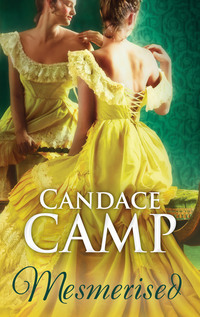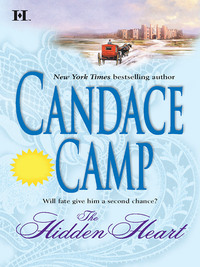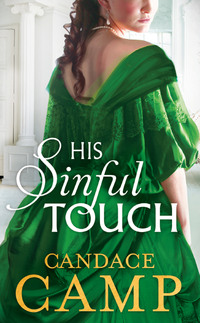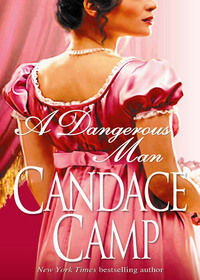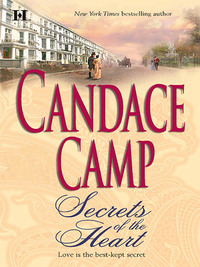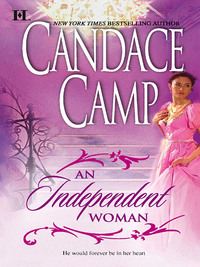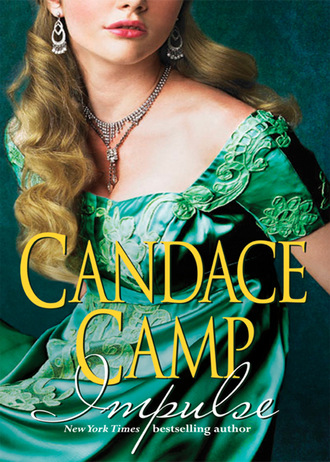
Полная версия
Impulse
Angela was sorry to find out that the occasion to talk to Cam alone presented itself to her the very next morning. She went down to breakfast early, as she was accustomed to doing. Generally she did so alone, since Jeremy kept town hours even when at Bridbury, and her mother and grandmother were wont to breakfast in their rooms. This morning, however, as she stepped into the dining room, she found Cam Monroe and Mr. Pettigrew already seated at the table.
“Miss Stanhope.” Mr. Pettigrew jumped to his feet. “That is, my lady. Forgive me, I am quite useless with these titles.”
Cam, whose back had been to her, turned at his employee’s words and also rose to his feet. He looked at her without expression and gave her a small bow. “My lady.”
Angela, who had stopped dead when she saw them, realized that she could not turn now and flee, as had been her first thought. She forced a small smile onto her face. “Good morning, gentlemen.”
The footman came forward to pour a cup of coffee for her at her usual place. Unfortunately, this place was beside Cam’s chair. The thought of sitting next to him made Angela’s lungs feel as if all the air were being crushed from them. But it would be rudely obvious if she was to change places after the servant had already placed her there. So she walked stiffly over to her chair and sat down, avoiding Cam’s eyes. She wished she could avoid his very presence, as well, but that was impossible. He filled up too much space and was entirely too close to her. She was aware of the heat of his skin, of his size, his breath, the faint lingering scent of his shaving soap.
She took a sip of her coffee, hoping that the trembling in her hands did not betray her too much, and glanced surreptitiously down at the men’s plates. Their plates were full; they had obviously just sat down, and they would just as obviously be here awhile. Angela considered getting herself only toast, so that she could eat quickly and leave. After all, the way her stomach felt right now, she could not eat anything, anyway.
However, when she got up and went to the breakfront, she found herself filling her plate like a trencherman, just to delay her return to the table. But when she sat down again, she could eat little, and merely toyed with it.
There was a gaping silence. Finally, Mr. Pettigrew cleared his throat and began, “I find the weather here more pleasant than I had expected. Is it always like this?”
“Usually it rains more this time of year,” Angela replied.
“I see.”
Again quiet lay upon them like a weight. Pettigrew tried again. “My compliments to your cook, Mi—I mean, my lady. The food is excellent.”
“Thank you. I will be sure to let Mrs. Fletcher know.”
Mr. Pettigrew seemed to have run out of conversational topics, for the silence stretched again. This time it was Angela who was pushed by the awkward atmosphere into attempting to make conversation. “How is your mother, Cam? Does she enjoy living in America?”
“She died a year and a half ago.”
“Oh. I’m so sorry.”
The last exchange seemed to end all hopes of polite conversation. Pettigrew ate swiftly and silently, and after a few moments, he rose to his feet, saying, “Excuse me, sir, ma’am, uh, my lady. I, ah, I am afraid I must excuse myself from the table. It was most delicious, but I have quite a bit of work to do.”
“Of course.” Angela smiled at him graciously, and Cameron gave him a short nod. Pettigrew left the room, and the servant cleared his plates. At a gesture from Cam, he, too, exited, leaving Cam and Angela alone together.
Angela pushed her eggs around, keeping her eyes on her plate, but she kept glancing at Cam out of the corner of her eye. He looked different—older, larger, harder—and yet so much the same that it made her heart skip a little in her chest. Over the years, she had forgotten exactly how thick and long his lashes grew, how fiercely dark his eyes were, and how angular his face was.
“Have I changed so much?” Cam asked finally.
Angela colored, aware of how she had been studying him. “I—I am sorry for staring. No. You have changed but little.” She turned back to her food. She did not expect him to say the same thing about her; she knew if he did, it would not be the truth. She saw herself in the mirror every day, and she knew that though her hair was the same texture and her eyes the same color, though her body was only a little less slender and more rounded, no one could think she looked the same as she had at sixteen. The spark that had once lit her face was gone, and her drabness was only emphasized by the plain, dark gowns she wore and the severe knot into which she wound her hair at the nape of her neck. Her skin, albeit still soft and white, no longer held a glow.
“I cannot say the same about you,” Cam told her bluntly.
Angela gave him a cool, measured look. “How kind of you to say so.”
“I did not mean,” Cam said stiffly, “that you are not still beautiful.”
“I am well aware what you meant. I have not aged well, shall we say? It does not matter to me.”
“I meant,” Cam went on stubbornly, “that you did not used to be so quiet. You were never timid.”
“Timid? You make me sound like a mouse.” Angela straightened her shoulders and fixed him with a firm, clear gaze. Once, she had looked at people in that way with ease; in recent years, she had learned to do it again. She could force herself to regard a man with no fear, though inside her stomach might coil. “I am hardly that, Mr. Monroe.”
“Mr. Monroe?” He looked at her quizzically. “I hardly think I am that unfamiliar to you.”
His words reminded her forcibly of exactly how close they had been years ago, and color flooded her face. She tilted up her chin, as if he had insulted her.
“I am sorry,” he told her quickly. “I did not mean—Well, I did not intend that as it sounded. I was talking about the fact that you had called me Cam since you were eight years old.”
“We are hardly in the same positions, however. You are a grown man, and one, moreover, who holds the future of Bridbury in his hands. I can hardly address you as a child does a groom.”
“I am still Cam.”
“All right, then. Cam.” She looked away as she said it, unable any longer to meet his gaze.
There was a moment’s silence while he studied her. Finally he said, “I think ‘tis time we talked. No more intermediaries. What do you say?”
“All right.” She turned back to face him. “However, I am afraid that we have little to say. My answer to you is the same as it was the other day. I will not marry you.”
“Indeed? I had thought you were a woman of greater common sense.”
“Common sense? Is that what you call giving in to coercion? I know some who would call it cowardice.”
“‘Tis common sense to marry where there is money. Look at it logically. You are facing living in genteel poverty. If you marry me, you shall be living in luxury. You married for money before. Why balk at it now?”
Angela blanched. His casually cruel words were like a slap in the face. She stood up abruptly, pushing back her chair. Her hands tightened into fists. “I did not marry Dunstan for money. However, I know that you will think what you will, no matter what I say. You always have. I thought I had good reasons for marrying him, but despite that, I regretted it bitterly.”
“So I have heard.” He looked at her levelly.
“I will not make that mistake again. I will not sacrifice myself, even for Jeremy.”
“Would marrying me be such a sacrifice?” His face tightened, and he rose to face her. “Once you were willing enough to come to my bed.”
Angela gasped. “How dare you! I never—”
“No. But can you say that you stayed away of your own volition?” His voice was as hard as steel.
Angela could say nothing. He spoke no less than the truth. She had been like wax in his hands back then; he could have done anything with her that he wanted, and she would never have said him nay. When Cam kissed her, her body had thrummed with desire. Her skin had been like flame to his touch. Even now, remembering that time, she could almost feel a stirring of warmth.
“No,” she admitted in a low voice. “To my shame, I cannot say that it was my virtue that kept me from your bed.”
“Nor from any other man’s, apparently.”
Angela stiffened as if a red-hot poker had been laid against her skin. She struggled to keep her voice neutral. “You have heard, then, of the allegations of my divorce.”
“Yes. I read a report about the proceedings. I read on what grounds your husband sued for divorcement, and I read the testimony of the three men.”
Angela hated the surge of anger and hurt that poured through her, hated most of all that it should hurt for Cam to think her promiscuous. But she had endured worse things without showing the pain. She had borne the testimony of Dunstan’s friends, knowing that with it she got what she wanted, freedom from him. And now, in the same way, she would use it again to help herself.
She shrugged elaborately. “I should wonder, then, that you would want to marry a woman such as I am. Hardly the unblemished wife most men seek.”
“I am not looking for a virgin. There are an ample number of them around. I could have found many in the United States.”
“You do not care if your wife is unfaithful to you?”
“I know you married a man you did not love. ‘Tis not unusual to seek passion outside a loveless marriage. I also know that it would not happen in this marriage.”
“You are very sure of yourself.” Angela’s voice was laced with sarcasm.
Her tone cut him to the quick, and he moved forward so that he stood only inches from her, his coal-black eyes boring down into hers. He wrapped his hand around her wrist. “I am sure of one thing. You were a very passionate woman, and you responded to me. I don’t think you can have changed that much over the last few years.”
Suddenly, before she realized what was happening, Cam pulled her up against him, and his other arm went around her, holding her to him. He bent and took her mouth with his. His lips were warm and firm, moving insistently against hers. It had been many years, but his kiss sparked a memory of that earlier passion. For just an instant Angela was the girl she had been, felt again the desire and the eagerness, and she swayed against him. Then the much more familiar coldness rushed through her, driving out the momentary response, and she stiffened, pulling away from him.
He let her go easily, but the faint smile on his face let her know he thought he had proved his point.
“That is what you have returned for?” she asked. “You are forcing me to marry you because of lust?”
“Hardly. I could have sex with any number of women. At far less cost than what I have given for that mine and the land. Mr. Pettigrew is beginning to question my business judgment.”
“I question your sanity. Why are you so eager to marry me, a woman you have not seen in thirteen years?”
“It is part of a vow I made when I left this place. When your grandfather tossed me off the estate and you married a nobleman, a man of wealth, I vowed that someday I would have that wealth. I would move among your people as an equal. My children would have noble blood in their veins. I swore that I would return here, and I would own the Stanhopes. And I would have you.”
She stared at him. “That is at the bottom of this? The angry words of a twenty-year-old lad?”
“It was more than that. It was a vow, a promise to myself. It is what drove me, the reward I would have. I would live in this house, own this land, and you would be my wife. It would be bad luck, I think, to deviate from that plan now.”
“But surely you cannot claim to love me still, after all these years!”
His lip curled. “Hardly.” He moved away from her, saying, “I rid myself of the curse of loving you long ago. I am not seeking your love. Only the fact of marrying you.”
“But why?” Angela cried, exasperated. “What satisfaction does it give you now? What pleasure?”
“The pleasure of having proved myself to those who despised me. Of having won over my enemies. Of having conquered, finally, that old son of a bitch.”
“My grandfather?”
“Yes. That night, with every blow he dealt me, all the time telling me how you were playing with me, using me, how no Stanhope could truly love a mere stable boy, that was what I kept thinking. That I would prove him wrong. That I would marry you, that I would have more money than the Stanhopes ever dreamed of having, that I would make that blue-blooded bastard sorry.” He shrugged. “Unfortunately, he died before I could do it, so I had to use Jeremy as a substitute.”
“A little unfair to Jeremy, don’t you think?” Angela snapped. She looked at him, thinking about his words. After a moment, she went on, “What did you mean, ‘with every blow’? Did he—did Grandpapa hit you? He told me he did not.”
Cam let out a snort of disbelief. “And you believed him? Of course he beat me. What did you think happened after you left the stables? The other grooms held me, and the old Earl laid into me with his cane. The Earl of Bridbury could hardly let a groom go with a tongue-lashing after he had dared to touch a Stanhope. When the grooms threw me down on my mother’s doorstep, I had three broken ribs and a concussion. That is why I did not sneak into the castle and try to get you out that night, for I was still foolish enough that I thought you would want to leave with me.”
Angela’s stomach twisted as she thought of what he had endured. She swallowed. “I—I am sorry. I did not know.”
“It was hardly unexpected. I knew what would happen if we were caught. I took the risk. At the time, I thought it was worth it.”
Angela turned and walked away. It was strange how, after all this time and all the other things that had happened to her, his bitter words had the power to hurt her. She had thought herself numb to pain, as well as to joy, for years now. She was not sure she liked finding out that she was not.
She turned around resolutely. “I did not deal with you unfaithfully.” When his eyebrow rose sardonically, she raised her hand, saying, “No, there is no need to protest. I realize that you do not believe me. You did not even then, when you still loved me. I did what I thought was necessary, and it … pained me to hurt you. I wanted that least of all. My family wronged you. Because of me, you were dealt with cruelly. It would have been far better if we had never … felt what we did. But all that is in the past, and we cannot do anything to change it. You must see that. No matter what you force me to do now or how badly you ruin Jeremy, you cannot make the whole thing come out any better. You cannot change my grandfather’s words or wipe out his blows. The only thing you will accomplish is to tie yourself to a woman who does not wish to marry you, and that hardly seems the way to lead a happy life. Why don’t you find someone you love, someone who will love you back? Then you could have a good life.”
He grimaced. “Thank you for your concern, my lady, but I have no interest in this sugarcoated future you envision for me. You see, I did get something of value from my dealings with the Stanhopes. I learned exactly how useless ‘love’ is. We were in love, and it did not help us. It did not stop your grandfather from separating us. It did not heal me. It did not keep you from marrying someone else. And, much as you seem to revere the idea of it, I do not see that it has kept you from winding up out here, a recluse, an outcast from your own people, divorced, shamed…. What do I need with this ‘love’ of yours?”
Angela’s cheeks flamed with color at his description of her life. “You think so highly of me, I can readily understand why you wish to marry me. Good God, Cam, don’t be such a fool! Marrying me is no way to move in the best circles. I am divorced and messily so. My reputation is thoroughly and permanently blackened. If you want position and heirs, not love, then find some other poor girl of good family. There are more families than the Stanhopes who are of good lineage and who would be happy to sell their daughter for a little cash. Let her give you noble children and entrée into Society. It would be far easier for both of you. But, for pity’s sake, leave me and mine alone!”
He regarded her silently for a long moment. Finally, he said, as if the words had been wrenched from him, “Would that I could! I wish to heaven some other family, some other little chit, could soothe the thing that has been burning in me for thirteen years. But they will not. No matter how difficult, how contrary, you are, no matter what your reputation has been, you are the only one who will satisfy me. You are the one I will have.”
He gave her a brisk nod, then turned on his heel and walked out of the room, leaving Angela where she was, gaping after him.
CHAPTER THREE
JASON PETTIGREW reluctantly drew his gaze from the much more interesting sight of the maid Kate polishing the brass sconces in the hall, which he could see through the open door of the study, and turned to look at his employer, who was pacing back and forth across the room, his brow furrowed.
“She is the most exasperating female,” Monroe was saying, his mouth set in a grim expression. “Not at all the way she was when I knew her.”
“I’m sure not, sir,” Pettigrew agreed, firmly thrusting aside the memory of the neat turn of Kate’s ankles as she stood on the stool, stretching up to reach the sconce, and the jiggle of her bosom beneath the maid’s uniform as she rubbed at the metal.
Cam paused, thinking about Angela as she had been thirteen years earlier—sparkling and full of life, her eyes lighting up whenever she saw him, that irrepressible smile bursting across her face. He could still remember how eagerly he had awaited each sight of her, how his heart had pounded in his chest whenever she came near. And it had not been only her beauty, but her spirit and sweetness, as well. But then, he reminded himself harshly, he had not really known her at all. What he remembered of her had been merely his illusion, the fiction that he had attached to her beauty.
“No doubt I am a fool even to try to marry her.”
Pettigrew looked up warily at Monroe’s words. They were the first thing his employer had said about this whole matter that made any sense to him. “Perhaps,” he began tentatively, “we should return to London, then.”
Cam flashed him a look that sent the faint hope of leaving out of his head. “No doubt. But I’m not going to. Damn it! She is going to be my wife.”
Pettigrew shifted uneasily in his chair. He had worked for Cameron Monroe for almost seven years, and in all that time, he had never seen him like this. God knew, he could be a hard man, and he was driven by demons that Jason did not understand, but Monroe was always practical, patient and, above all, calm and self-possessed, even to the point of coldness. He had never acted irrationally or in the heat of the moment … until now.
What he was doing made no sense to Jason. It was hardly as if there were not plenty of young women back in the U.S. who would be more than happy to be Mrs. Cameron Monroe. He was one of the wealthiest men in the country, and he was still young, no more than thirty-three or thirty-four, as well as quite handsome. There had been any number of hopeful mothers throwing their daughters in his path the past few years. And if he was so set on marrying into the English nobility—another thing Jason Pettigrew found difficult to understand—it was well-known that there were plenty of impoverished nobles in Britain who would be more than willing to make a financially advantageous marriage for one of their daughters.
However, Cam was dead set on this one family and this one woman, who, having been involved in a scandalous divorce, was not even socially acceptable. It was not as if she were beautiful, either. Pettigrew would admit that she was pretty … in a very subdued way. Her blue eyes were fine and intelligent, her oval face was almost perfectly modeled, and her hair was an intriguing reddish color. But her features were devoid of animation, and she wore her hair screwed tightly into a bun. Her clothes were dark and drab, successfully hiding whatever sort of figure she had. Jason did not think he had once seen her smile or heard her laugh since he came to Bridbury. Certainly she exhibited none of the feminine graces or flirtatious airs that were likely to lure a man.
Yet Monroe was determined to have her, even to the point of using all the force of his power and wealth to coerce her into marrying him. Certainly Pettigrew was not fool enough to try to dissuade Cam Monroe from a course he was set upon.
“I thought she would be reasonable,” Monroe went on. “Pragmatic. God knows she went to Dunstan willingly enough, and she had no feeling for him.”
Despite what had happened, Cam was certain on that particular point. Whatever she had lied about when he was in love with her, he had felt the passion in her for him. He had also seen her with Lord Dunstan once or twice that weekend, and she had been completely uninterested in him. No, marriage to Dunstan had been for family reasons, for money. Cam had been certain she would be guided by the same motives here. Had Dunstan soured her so on the state of marriage? Or was it that she had discovered she could never be content with just one man? Cam quickly shut that thought out of his mind; he did not like to think of Angela’s promiscuity. The idea of her being with even one other man had tormented his nights when he first went to America. The thought that she had in reality had at least three other lovers, maybe more, had gnawed at him from the first moment that he read the lawyer’s report.
“Do you think the allegations at the divorce trial were true?” he asked abruptly, startling Pettigrew, whose thoughts had not followed the same trail.
“What? Oh, well, uh, she did not deny them.” Pettigrew was well aware that he was treading on very delicate ground. No man, least of all one as proud as Cameron Monroe, would like to think that he was going to marry a hussy. He thought hastily. “On the other hand, she certainly does not look like the sort of woman who would … ah …”
“No,” Cam agreed quickly. “She looks—well, except for sometimes when she seems to forget herself and gets angry and her eyes flash—she looks almost mousy. But Angela never had an ounce of fear in her.” He smiled faintly. “I remember how she used to ride, even when she was little, how she’d throw her heart over the fences.”
Pettigrew looked at his employer narrowly. He heard the tinge of affection in Cam’s voice, and not for the first time, he wondered what had linked Monroe with this woman in the past. He knew no more than anyone else in the United States did what Cameron Monroe’s history had been before he came to America. He had heard stories, of course, about his grit and determination, about his courage in the oil fields of Pennsylvania and his shrewd business sense. But about the time before he had arrived in New York, at the age of twenty, Pettigrew knew nothing.
“You, ah, taught her to ride?” he asked colorlessly.
Cam shook his head. “No. That was old Wicker’s job, and he was quite jealous of it. He taught all the Stanhopes to ride. I came to work in the stables when I was eleven. I used to watch her riding about the ring on her little pony, Wicker holding the leading rein. She always wanted him to let her go. She was only seven. Later, when she was older, I would ride out with her to make sure she came to no harm—as if anyone around here would have touched a hair on her head. They all loved her.”
Jason was growing more and more interested. He was beginning to suspect that his employer had been one of those many people who loved her. Had he loved her all these years? But then, Jason reminded himself, the means that Monroe had chosen to persuade Angela Stanhope to marry him would hardly qualify as loverlike. No, only anger and bitterness could have engendered his harsh methods.
“Perhaps, sir,” he suggested cautiously, “you might want to woo the lady in question.”


